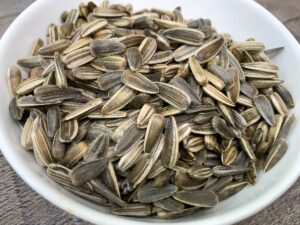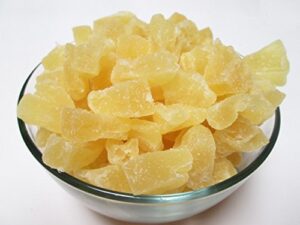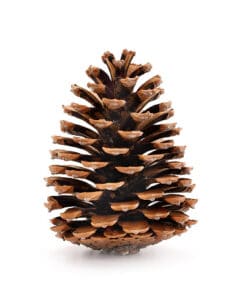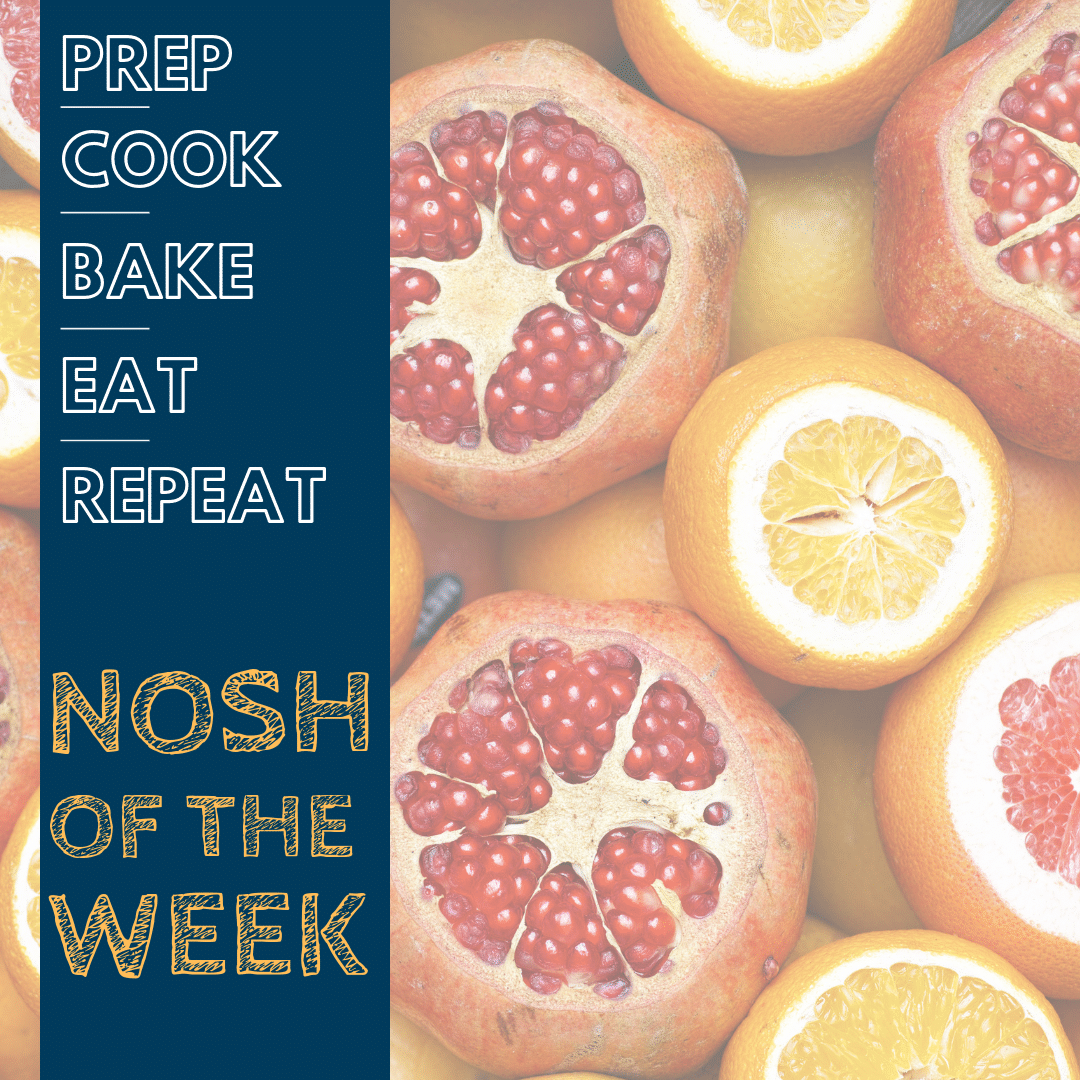By Rabbi Alex Lazarus-Klein
The Passover Seder plate is a way of telling our 4,000-year-old story of servitude and liberation through food. Each item traditionally included is meant to reflect one part of the story of the Exodus from Egypt. The Matzah is not just flat bread, but a way of tasting our affliction. The Marror is not just horse radish, but a strong reminder of the bitterness of slavery. And the Haroset is not just a sweet blend of apples and walnuts, but a symbolic reminder of the mortar once used for building the storehouses of Pharaoh.
More recently, Jews have begun adding items to our Seder plate that represent our current times. This has ranged from an orange, made famous by Susannah Heschel as representing the LGBTQ+ community, to fair trade chocolate and coffee beans spotlighting the continued epedemic of child slavery in the world.
Here are our suggestions for our 2022/5782 Passover Seder plates from the Buffalo Jewish Community Relations Council:
 Sunflower Seeds: Sunflowers are the national flower of Ukraine. Over 60 percent of the global sunflower oil is produced in the region. By including sunflower seeds or the flowers themselves we are sending strength and support to the Ukrainian people.
Sunflower Seeds: Sunflowers are the national flower of Ukraine. Over 60 percent of the global sunflower oil is produced in the region. By including sunflower seeds or the flowers themselves we are sending strength and support to the Ukrainian people.
 Banana Chips: In 2015, Rabbi Dan Moskovitz began placing a banana on his seder plate in honor of two Syrian refugees Aylan and Galip Kurdi who perished on the beaches of Turkey. Their father would bring the two boys a banana each morning. We continue this tradition using banana chips instead of a banana (easier to fit onto a seder plate) in honor of the over 65 million+ who are wandering homeless, including over 10 million+ Ukranians and Afghanees. Jewish Family Services of Western New York is one of the primary resettlement agencies of refugees in Buffalo.
Banana Chips: In 2015, Rabbi Dan Moskovitz began placing a banana on his seder plate in honor of two Syrian refugees Aylan and Galip Kurdi who perished on the beaches of Turkey. Their father would bring the two boys a banana each morning. We continue this tradition using banana chips instead of a banana (easier to fit onto a seder plate) in honor of the over 65 million+ who are wandering homeless, including over 10 million+ Ukranians and Afghanees. Jewish Family Services of Western New York is one of the primary resettlement agencies of refugees in Buffalo.
 Dried Pineapple: During the pandemic, Rabbi Sharon Barr Skolnik suggested using a pineapple, “whose exterior is hard, rough and protective of its sweet and delicious inside, reminds me of the physical appearance of our first responders in their surgical gowns, plastic face shields, and life-saving masks as they battle daily.” For our third pandemic Passover seder, it is appropriate to continue this tradition, again using dried pineapple instead of a whole pineapple.
Dried Pineapple: During the pandemic, Rabbi Sharon Barr Skolnik suggested using a pineapple, “whose exterior is hard, rough and protective of its sweet and delicious inside, reminds me of the physical appearance of our first responders in their surgical gowns, plastic face shields, and life-saving masks as they battle daily.” For our third pandemic Passover seder, it is appropriate to continue this tradition, again using dried pineapple instead of a whole pineapple.
 Pinecones: Temple Israel in Boston, MA, includes a pinecone as a shout out to racial justice and prison reform. They write in their Seder insert, “We pass over pine cones every day. Inside each of these pinecones is among the most precious of all nuts – the pine nut. Most of us pass more pine nuts in a single day than one could count in a year. Yet they remain hidden, unseen. Moreover, they’re nearly impossible to extract with our own hands. The pinecone ‘imprisons’ its seeds, and only hard work on the part of nature compels it to open up.” Fighting for racial justice is one of the core priorities of our JCRC.
Pinecones: Temple Israel in Boston, MA, includes a pinecone as a shout out to racial justice and prison reform. They write in their Seder insert, “We pass over pine cones every day. Inside each of these pinecones is among the most precious of all nuts – the pine nut. Most of us pass more pine nuts in a single day than one could count in a year. Yet they remain hidden, unseen. Moreover, they’re nearly impossible to extract with our own hands. The pinecone ‘imprisons’ its seeds, and only hard work on the part of nature compels it to open up.” Fighting for racial justice is one of the core priorities of our JCRC.
Other additions you might consider are an olive for peace in Israel, an acorn for indigeneous people, or potato chips for food access to all. Feel free to come up with new traditions of your own.
Check out this article from Reform Judaism or this article from Boulder Jewish News for more ideas!
A happy and healthy Passover from our entire JCRC team!
Rabbi Alex Lazarus-Klein is a spiritual leader at Congregation Shir Shalom and the Rabbinic Consultant for the Buffalo Jewish Community Relations Council.

